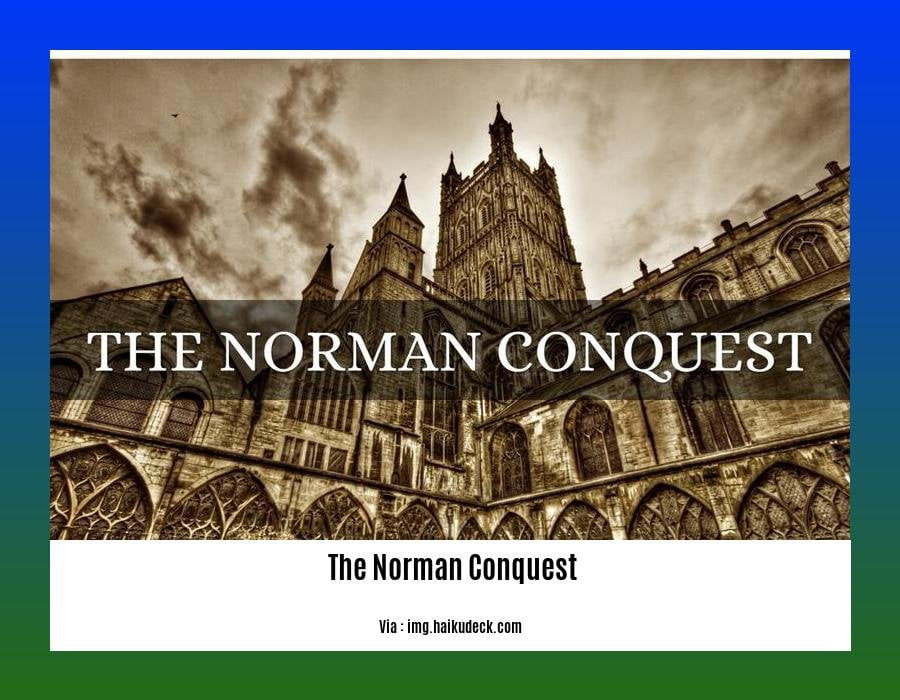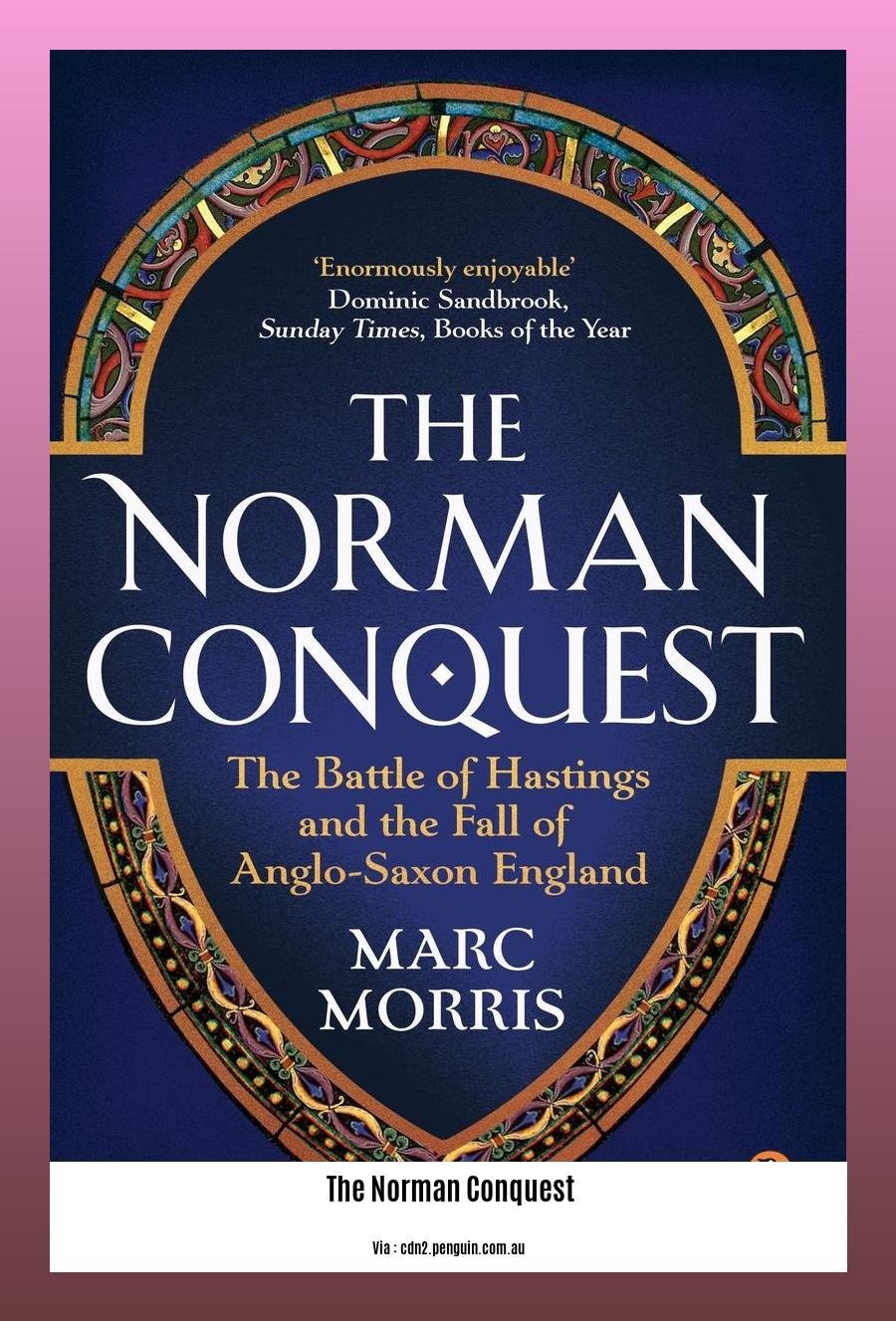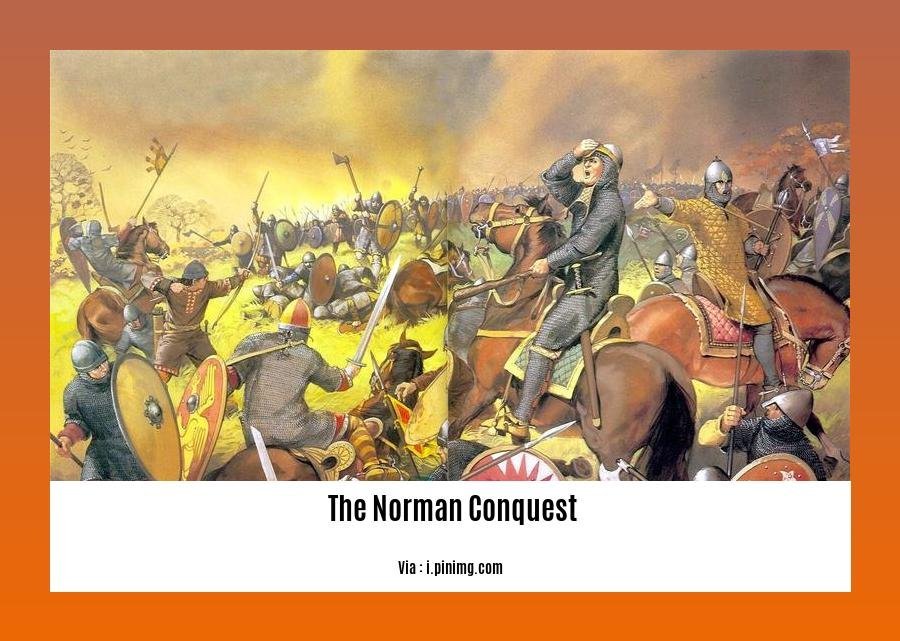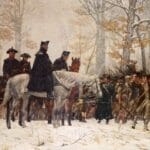Step into the annals of history as we embark on [A Detailed Examination of the Profound Impact of the Norman Conquest]. This pivotal event, a clash of civilizations and a turning point in English history, forever altered the political, social, and cultural landscape of the British Isles. Join us as we delve into the fascinating world of the Normans, their invasion of England in 1066, and the lasting legacy they left behind.
Key Takeaways:
- The Norman Conquest was a military invasion of England in 1066, led by William, Duke of Normandy.
- William’s army comprised around 4,000-7,000 soldiers from various regions of Europe.
- The conquest resulted in significant political, administrative, and societal shifts in England.
The Norman Conquest

In 1066, The Norman Conquest forever altered the course of English history. Led by William, Duke of Normandy, the Norman army invaded England, bringing about profound political, social, and cultural changes.
Causes of the Conquest
- Rivalry between Anglo-Saxons and Normans for control of England
- Harold Godwinson’s claim to the English throne challenged by William
- Norman desire for land and wealth
Key Events
- Battle of Hastings (1066): Decisive Norman victory solidified William’s claim to the throne.
- Coronation of William as King: Established Norman rule over England.
- Introduction of Feudalism: Implemented a hierarchical land-holding system.
- Normanization of England: Gradual adoption of Norman customs, language, and laws.
Impact of the Conquest
Political:
- Establishment of a centralized monarchy under Norman kings.
- Introduction of new administrative structures (e.g., sheriffdoms).
- Creation of a new ruling class of Norman nobles.
Social:
- Division of society into distinct classes based on land ownership.
- Emergence of chivalry and the knightly class.
- Reorganization of the Church under the authority of the Pope.
Cultural:
- Introduction of Norman French as the language of the ruling elite.
- Fusion of Anglo-Saxon and Norman artistic and literary traditions.
- Establishment of new architectural styles (e.g., Norman architecture).
Conclusion
The Norman Conquest ushered in a transformative era for England. It marked the end of Anglo-Saxon rule and the beginning of a new chapter under Norman dominance. The conquest had lasting effects on the country’s political, social, and cultural landscape, shaping its destiny for centuries to come.
Unravel the captivating tale of England’s past through our meticulously researched article on the History of England.
Delve into the transformative era of the Roman conquest of Britain, shaping the land’s destiny for centuries.
Uncover the origins of the Industrial Revolution, which propelled England to the forefront of technological advancement and forever altered the course of human society.
Political and Social Transformations under Norman Rule
Political Transformations
The Norman Conquest dramatically reshaped England’s political landscape. William the Conqueror established a centralized monarchy, consolidating power and creating a more efficient system of governance. He introduced feudalism, a landholding system where tenants owed military service to their lords, creating a new social and military hierarchy.
Social Transformations
The conquest also had profound social consequences. The Norman aristocracy replaced the Anglo-Saxon elite, introducing Norman customs and culture. This societal shift led to the division of society into distinct classes based on land ownership: the ruling class, the knights, and the peasantry.
Key Takeaways:
- Centralized monarchy and administrative reforms
- Introduction of feudalism and a new social hierarchy
- Replacement of the Anglo-Saxon ruling class by the Norman aristocracy
- Land redistribution and the introduction of primogeniture
- Emergence of a two-tier parliamentary system
Citations:
- Norman Conquest
- Norman Conquest: Social and Political Changes
Cultural and Intellectual Legacies of the Norman Conquest

After the upheaval of the Norman Conquest, England emerged with a profoundly altered cultural and intellectual landscape. Here are some of its lasting legacies:
Language and Literature:
- French Influence: Norman French became the language of the elite, displacing English as the language of law, administration, and high culture.
- English Renaissance: The clash of cultures eventually led to the revitalization of the English language. By the 14th century, English literature had absorbed Norman influence and flourished anew.
Art and Architecture:
- Norman Romanesque Architecture: The Normans introduced a new style of architecture, characterized by round arches, massive walls, and elaborate ornamentation.
- Bayeux Tapestry: This iconic embroidery, created after the conquest, depicts the events leading up to the Battle of Hastings. It provides a unique glimpse into the artistic and cultural values of the time.
Scholarship and Education:
- Rise of Universities: The Normans established several new universities, such as Oxford and Cambridge. These institutions became centers of learning and intellectual exchange, fostering the development of science, philosophy, and theology.
- Latin as the Language of Learning: Latin remained the primary language of scholarship throughout the Middle Ages. However, the influence of Norman French seeped into intellectual works, enriching the English language with new vocabulary.
Key Takeaways:
- Bilingualism: The Norman Conquest resulted in a bilingual society, with French and English coexisting in various spheres of life.
- Cultural Exchange: The conquest facilitated an exchange of ideas and cultural practices between England and France.
- Enduring Impact: The cultural and intellectual legacies of the Norman Conquest continue to influence English society and culture today.
Relevant URL Sources:
- The Impact of the Norman Conquest on English Language and Literature
- The Norman Conquest and the Rise of Universities
The Enduring Impact of the Norman Conquest on English History
In 1066, William the Conqueror led an invasion that forever transformed England. The Norman Conquest brought profound changes that shaped English society, culture, and politics for centuries to come.
Key Takeaways:
- Feudal System: The Normans introduced a feudal system, where landholders owed military service to the king, creating a hierarchical society.
- Norman Ruling Class: The Anglo-Saxon nobility was largely replaced by Norman lords, who brought their customs and language.
- Architectural Revolution: The Normans built numerous stone castles and cathedrals, such as the Tower of London and Durham Cathedral.
- Centralized Monarchy: William established a strong centralized monarchy, weakening the power of regional lords and increasing royal authority.
- Domesday Book: The Normans conducted a comprehensive land survey, known as the Domesday Book, which provided a detailed record of England’s wealth and resources.
- Language and Culture: Norman French became the language of the elite, influencing the development of the English language and introducing new cultural practices.
Political Impact:
The Norman Conquest led to a shift in political power. The Anglo-Saxon monarchy was replaced by a Norman dynasty, and the power of the king was significantly strengthened. The Normans introduced the feudal system, which created a hierarchical structure of landownership and military service. This system profoundly impacted English society and politics for centuries.
Social Impact:
The Norman Conquest had a profound impact on English society. The Anglo-Saxon nobility was largely replaced by Norman lords, who brought their own customs and culture to England. The Normans introduced a new language, Norman French, which became the language of the elite and influenced the development of the English language. The conquest also led to the rise of chivalry and the knightly class.
Cultural Impact:
The Norman Conquest had a significant impact on English culture. The Normans brought their own artistic traditions to England, which blended with Anglo-Saxon traditions to create a new Norman-English culture. The Normans also introduced new forms of entertainment, such as jousting and archery.
Conclusion:
The Enduring Impact of the Norman Conquest on English History cannot be overstated. The conquest brought about profound changes in politics, society, and culture that shaped the course of English history for centuries to come. Its legacy can still be seen in English institutions, language, and culture today.
Relevant URL Sources:
- The Norman Conquest of England – World History Encyclopedia
- Norman Conquest and its Impact on England – Britannica
FAQ
Q1: What sparked the Norman Conquest?
Q2: How did the Norman Conquest impact England’s political landscape?
Q3: What were the primary social changes brought about by the Norman Conquest?
Q4: How did the Norman Conquest affect architectural structures in England?
Q5: What were the lasting consequences of the Norman Conquest on English society and culture?
- Amazing March Fun Facts: Unveiling History & Celebrations - April 15, 2025
- Master how to write height: A complete guide - April 15, 2025
- How High Are Your Standards Test: Find Your Perfect Match Now - April 15, 2025
















